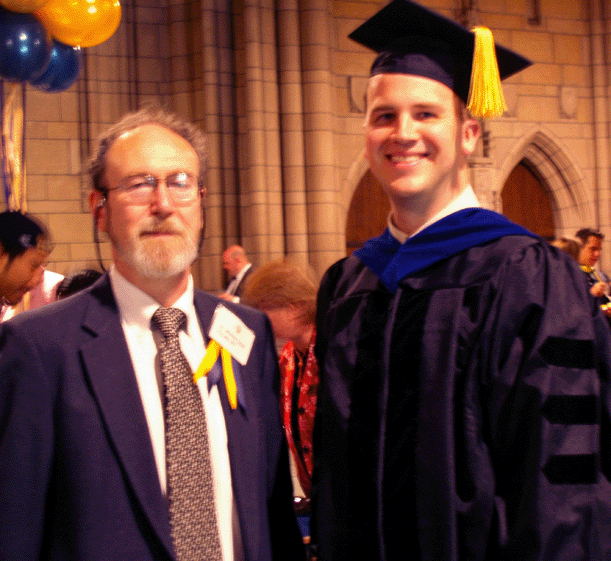|
Lewis Promoted to Professor |
||
Lewis has designed, developed, and implemented a research
program in Human Factors along with an evolving curriculum
that keeps pace with the state-of-the-art. His
research efforts led to the founding (with the late
Dr. Korfhage) of Pitt’s Usability Laboratory
in 1996 and the Virtual Theater (a virtual reality
facility) in 2003. Lewis’ research has
been supported by the National Science Foundation,
Office of Naval Research (ONR), Air Force Office of
Scientific Research, Air Force Research Laboratory
and the National Institute of Standards and Technology
among others. Lewis has more than 125 publications
to his credit, and he has developed widely-used research
tools in virtual reality, robotics, and military simulation. This spring, Lewis was part of a team that won a Multidisciplinary University Research Initiative award to study “Cognition and Collaboration in Network Centric Operations: Understanding and Measuring Macro recognition in Teams.” He mentors four PhD candidates and offers courses on Interactive Systems Design and Human Factors. . |

 The School of Information Sciences
is proud to announce that Michael Lewis has been promoted
to Full Professor as of July 2006. The faculty,
staff and students at SIS offer their congratulations
to Lewis, who has been a member of the SIS faculty
since 1987. Lewis came to Pitt after earning
his Ph.D. in Psychology with a concentration in Engineering
Psychology (Human Factors) from Georgia Tech. His research
is focused on human interaction with intelligent automation.
The School of Information Sciences
is proud to announce that Michael Lewis has been promoted
to Full Professor as of July 2006. The faculty,
staff and students at SIS offer their congratulations
to Lewis, who has been a member of the SIS faculty
since 1987. Lewis came to Pitt after earning
his Ph.D. in Psychology with a concentration in Engineering
Psychology (Human Factors) from Georgia Tech. His research
is focused on human interaction with intelligent automation.